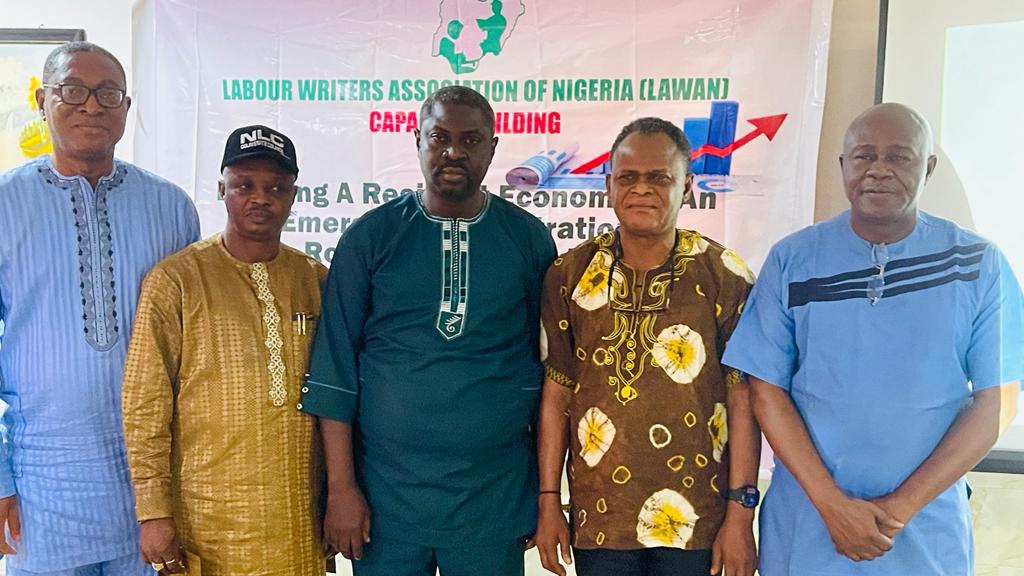 Stakeholders have urged the Federal Government to establish quality economic governance, consistent with tested economic principles and empirical evidence.
Stakeholders have urged the Federal Government to establish quality economic governance, consistent with tested economic principles and empirical evidence.
The reforms, they argued, should be contextualised within the socio-economic peculiarities of Nigeria. They made the call at a forum organised by the Labour Writers’ Association of Nigeria (LAWAN) in Ogun State.
Speaking on Building a Resilient Economy in an Emerging Administration: Roles of Stakeholders, during a paper presentation, the Chief Executive Officer of the Centre for the Promotion of Private Enterprise (CPPE), Dr Muda Yusuf, said economic reforms are not supposed to be hard in themselves but are supposed to be a means to an end, such as welfare to the citizens, which would ultimately lead to a resilient economy.
Noting that no economic management model should be adopted in absolute terms, he said policies must be reviewed periodically in the light of prevailing circumstances.
He attributed good economic governance quality to the economic team to give guidance and direction on general economic policy direction, policy conceptualisation and needed reforms; level playing field for all economic players and avoidance of state capture as well as broadening the role of markets for value delivery and boosting of private enterprise in the economy.
“This is not to suggest an endorsement of the policy summersault, which is very disruptive to the economy. This is critical from the onset for positive signalling and the deepening of investors’ confidence.
“There should be an adequate regulatory framework to protect the citizens from exploitation by capitalist elements. There is a need to fight the market forces rather than review oil prices when things are getting to an extreme. These are some of the things the government needed to do to ensure social stability and an equitable society,” he said.
Executive Secretary of the Chemical and Non-Metallic Products Employers Federation (CANMPEF), Olorunfemi Oke, said building a resilient economy is a complex task that requires the cooperation of all stakeholders, including the government, private sector, labour unions and civil society.
He said all working in tandem, could create an economy that is strong, fair and sustainable that could build a more resilient economy that would benefit all Nigerians.
In his submission, President of the Nigeria Labour Congress (NLC), Joe Ajaero, lamented that four months since the government decided on palliative intervention, Nigerians are yet to see any.
Ajaero, who was represented by the NLC’s Head of Information and Public Affairs, Benson Upah, said the devaluation of the naira and subsidy removal were some of the worst decisions the government took that have caused pain to the masses.
He added that it was important for the government to listen to criticisms, engage with stakeholders and make the right decisions if it wants to build a resilient economy.
Chairman of LAWAN, Toba Agboola, who said the emergence of a new administration informed the choice of the theme, said for Nigeria to regain its pride of place in the comity of nations, the current administration must adopt effective laws, policies and regulations capable of driving sustainable growth and economic development.






